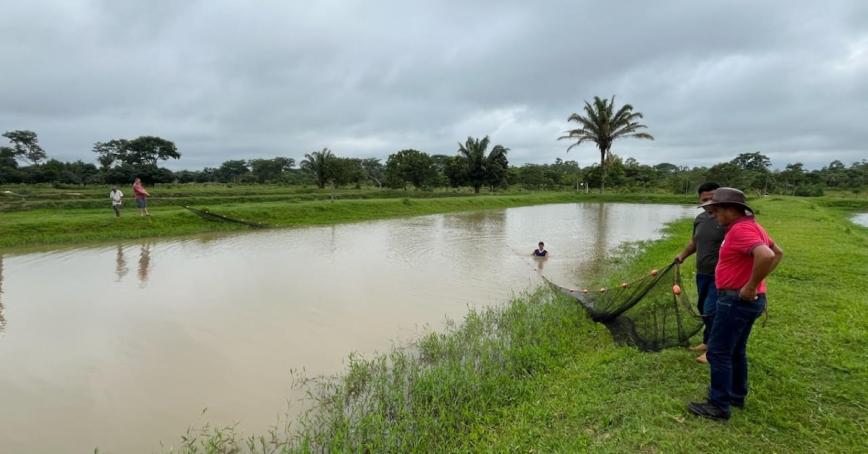RRU Prof contributes to impactful change in Bolivia's aquaculture

Sean Irwin, associate professor of business, is contributing to impactful change in Bolivia’s aquaculture.
Irwin has worked in Bolivian aquaculture for more than 10 years. His work has helped the system become, according to the Food and Agriculture Organization (FAO) of the UN, one of the fastest growing aquaculture systems in the world.
“Aquaculture is just the farming of fish rather than the catching of fish,” Irwin explains. “Like farming, there's different species, there's different systems, [it’s] different all over the world.
"So, here [in BC] we associate the word 'aquaculture' with pen farming on the coast. In Bolivia, they don't have a coast. It's a landlocked country, and so what they do down there is they farm in ponds.”
Irwin received a $174,325 grant from the Fund for Innovation and Transformation (FIT) to help with the introduction of fish powder for both women's livelihoods and nutrition in Bolivia. FIT is funded through the Manitoba Council for International Cooperation and Global Affairs Canada.
“[Bolivia] has one of the lowest rates of fish consumption in the world, and that's too bad, because fish is actually very good for your health…it's got a lot of micronutrients. It's rich in iron, it's a very good protein and not only that, from an environmental perspective, if it's done correctly, aquaculture can actually be quite, quite environmentally benign in comparison to other farming."
The focus of Irwin's current work is to explore new product lines for aquaculture fish.
“[We’re] looking to create fish powder. Fish powder is essentially just taking fish, drying it…and then powdering it by running it through a blender, basically.”
Fish powder is nutrient dense, as a lot of nutrients in fish are in the skin, eyes, and bones. Fish powder is a fine, sand-like powder that can be baked into things and added on top of dishes.
“We've done some experiments with making cookies,” Irwin says, explaining that they're also hoping it eventually becomes popular as a table staple, like salt shakers. You would add it to whatever you're eating as an instant nutritional supplement.
“This project is primarily focused on women's empowerment," Irwin adds. "The product itself is going to be designed by, produced by, owned by women."
The FIT grant has a ten-month timeline that started in January and is being done in collaboration with World Fisheries Trust.
“Our team down in Bolivia, there's Roxana, Luis and Alvaro, and they're really the spearhead of the whole thing,” says Irwin.
With the first phase complete, the team is moving on to the second stage, the design phase. The design phase involves a focus group of women to get an idea of what they would like to see on the marketing, labelling, etc. From there a prototype will be created, feedback gathered from the group, and then going to market with the product.
“We're going to take it to fairs, and some of these public events where they promote new products, and we're going to see what the reaction is from consumers. Take that into account a little bit," Irwin explains. “Then try to set it up so that when the project is done, that the demand from the market opportunity and the demand from consumers basically perpetuates the functioning of the company, of the product.”